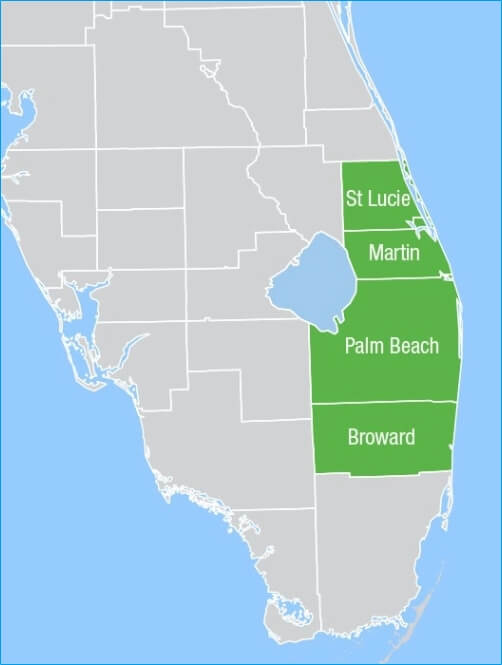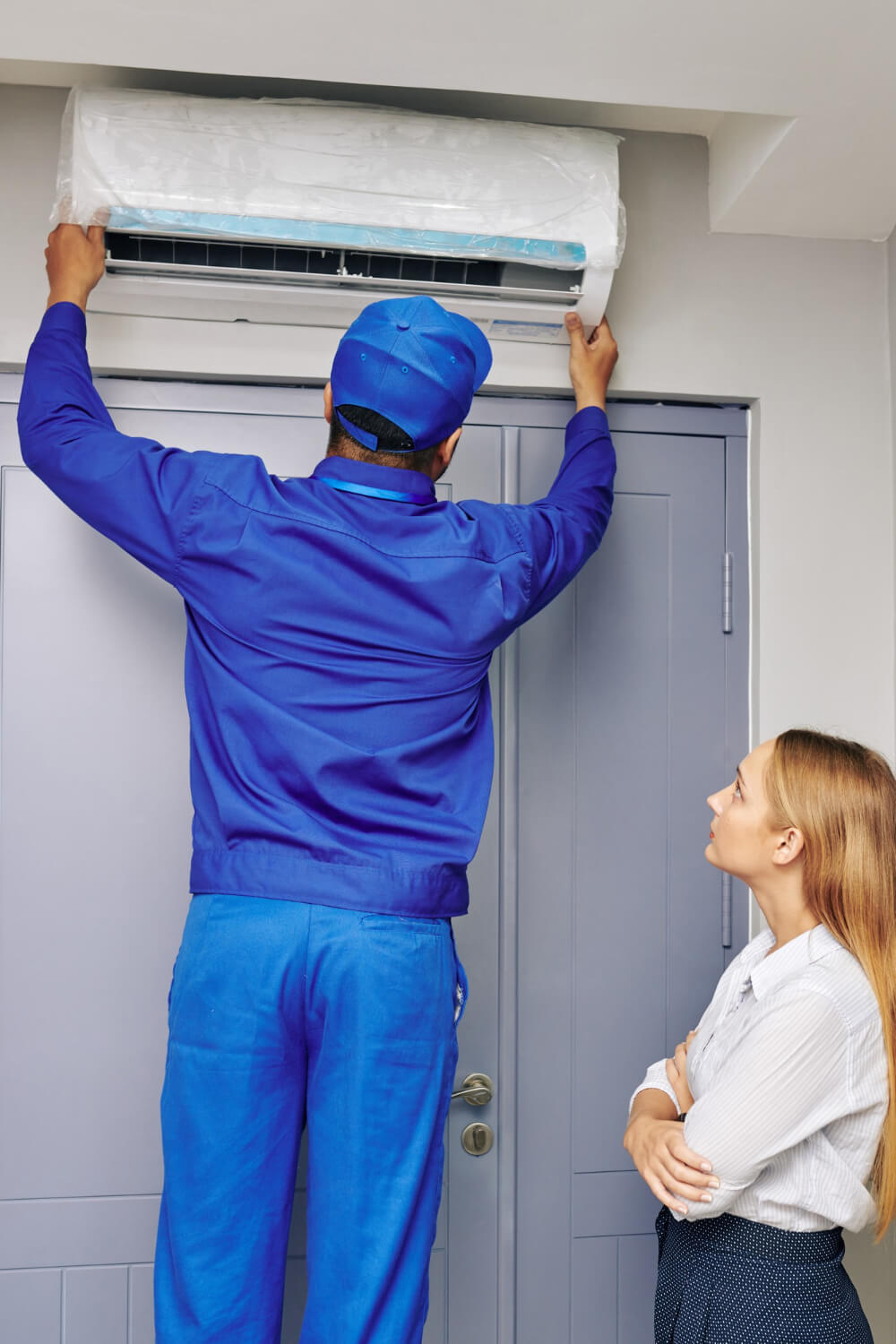
48-Point Air Conditioning Inspections in Palm Beach County, FL
AC units can break down, sometimes at the worst times. This is often the result of failing to have it maintained on an annual basis, a buildup of debris around the unit, or an incorrectly sized unit.
Along with the unbearable heat, these malfunctions mean your AC unit uses more energy, your indoor air quality suffers, and your entire system strains to keep your house cool. Over time, this wears on your air conditioner, and it eventually results in a more drastic, more expensive problem.
At Airworx Air Conditioning, we provide a thorough, 48-point inspection of your AC unit to ensure that it is operating at optimum performance.
What’s included in the 48-Point inspection?
We check everything and anything that might hinder your AC unit’s performance. During our inspection, we’ll immediately address anything that looks suspicious and pinpoint issues that could lead to costly air conditioning damage in the future.
Here’s a small sample of our checklist:
- Remove all debris from condenser.
- Check status of insulation in attic.
- Evaluate the overall efficiency of the unit.
- Check all electrical connections.
- Calibrate thermostat.
- Analyze duct system.
- Check condition of blower motor.
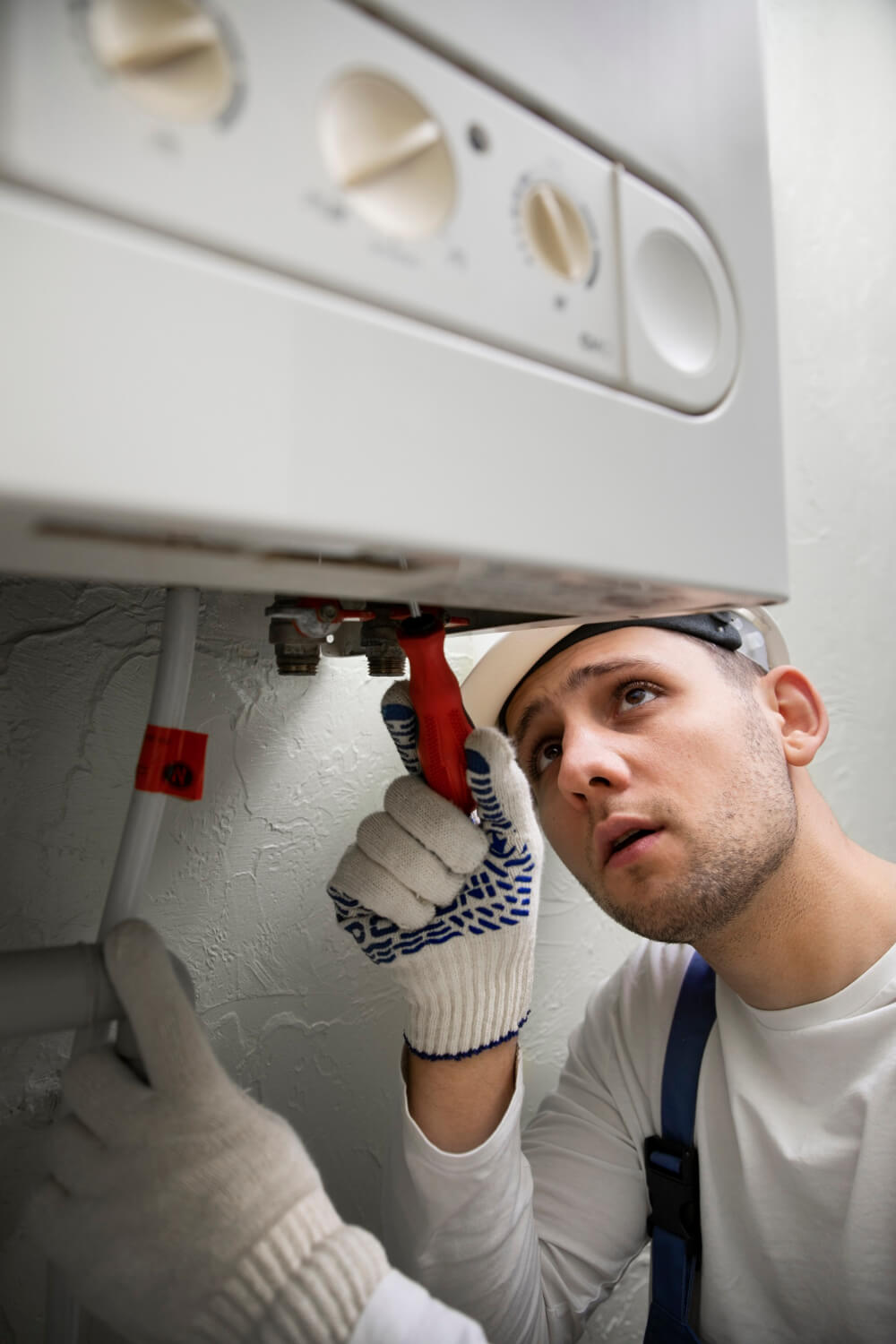
Keep your AC running great all year
If you want to keep your AC unit running for as long as possible, consider some of these easy, at-home maintenance steps.
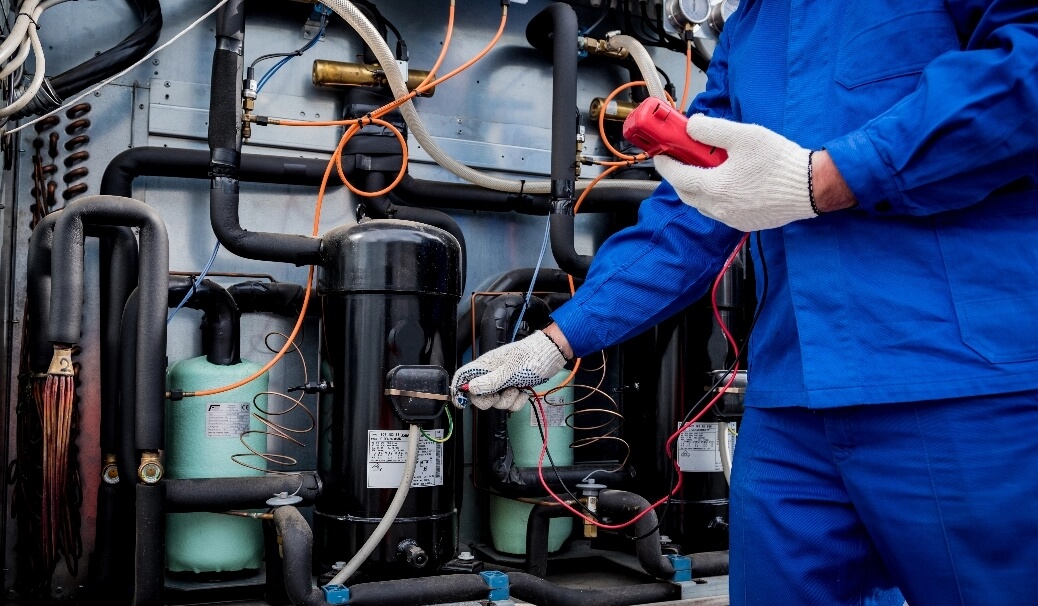
In order for AC units to work properly, the area around them needs to be clear of any plants or debris so the air can flow easily through the unit. A lot of people try to purposefully hide their outdoor AC units with plants and fences, but doing so actually makes it work less efficiently and increases the odds that something will interfere with it. A general rule of thumb is to keep clear a 3-foot radius around the unit.
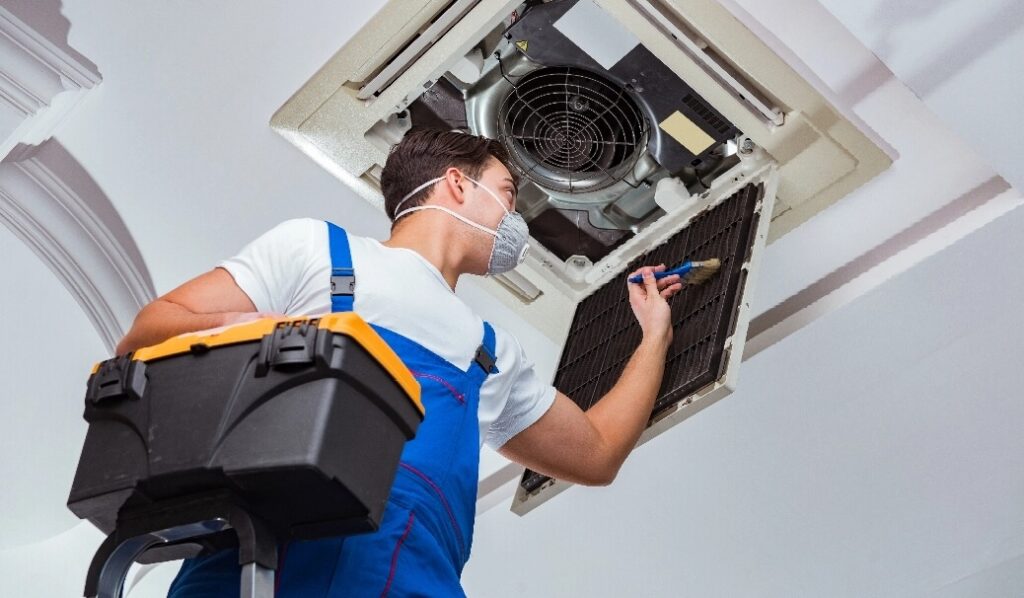
Another way to help with your AC unit’s airflow is to take a garden hose to the condenser coils—the “caged” part on the sides of the unit. Pollen, allergens, and spiderwebs will build up here over time and restrict airflow. If the buildup is bad enough, it may even cause your unit to overheat. However, it’s very easy to clean. Just use a hard stream of water from your hose and use it to clear off the condenser coils from top to bottom.
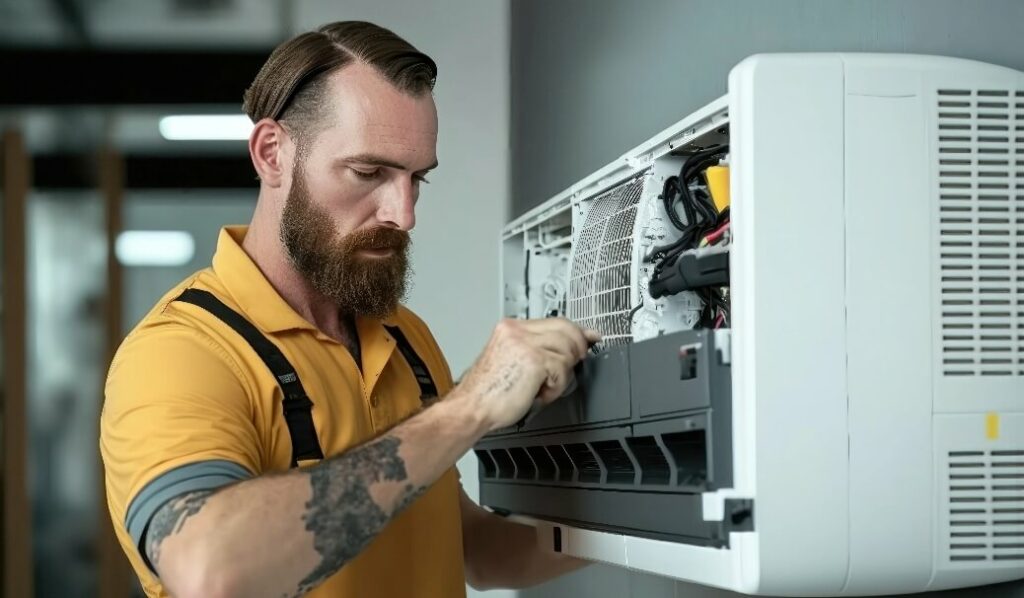
Changing the air filter in your unit is often as easy as sliding out the old and sliding in the new. You can often disregard the recommended schedule on the filter packages, and use your best judgment on whether you need to change the filter or not. Consider how often you’re running the AC and how dirty the filter is. It will often need to be changed more during the summer than the winter.

